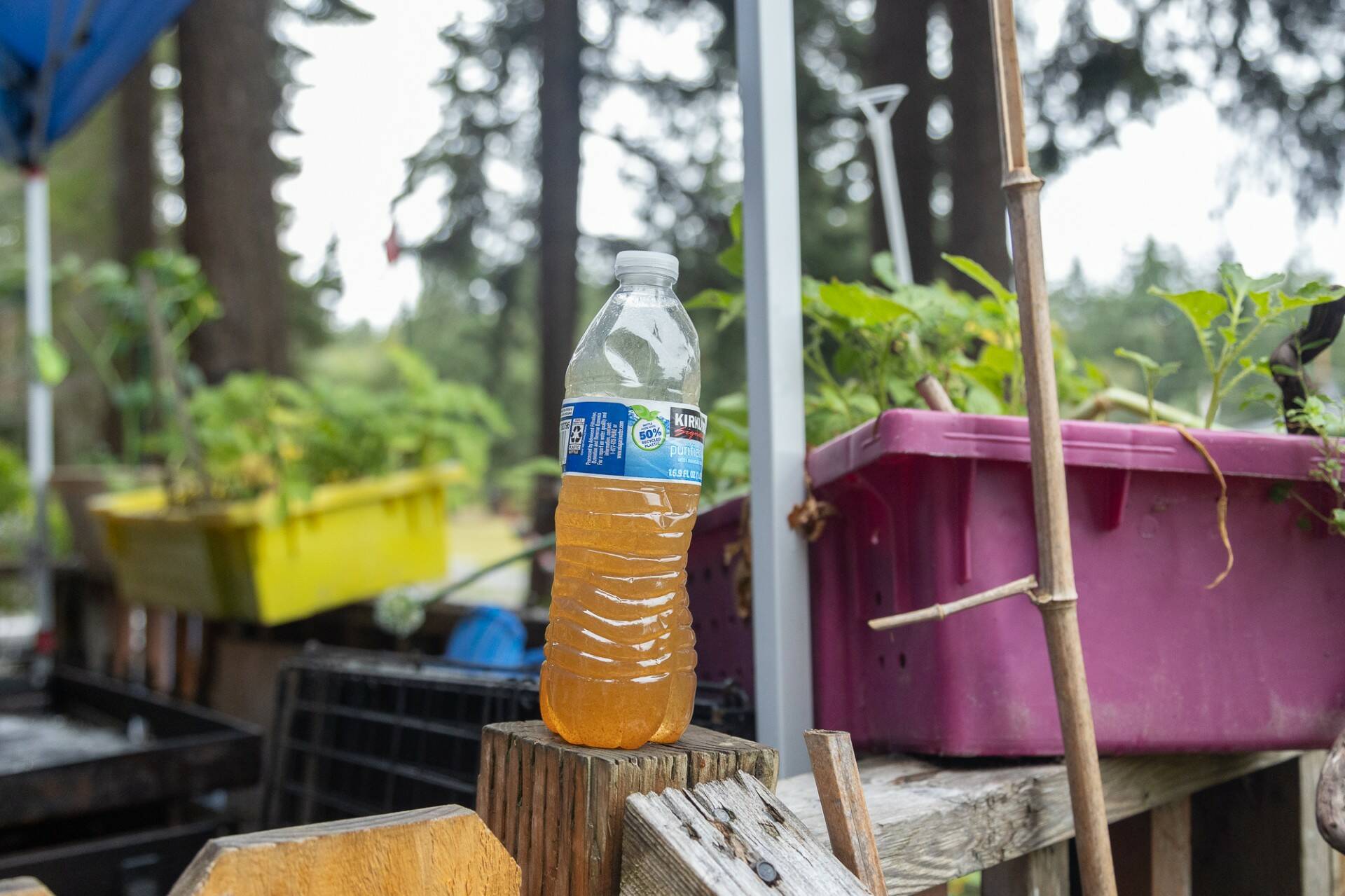Since the most recent property owner took over Valley High Mobile Home Park on Oak Harbor Road in the early 2000s, tenants who have lived there for decades have experienced the decline of community infrastructure and health.
Limited water pressure, leaking sewage, broken utilities, yellow water. Some residents wonder if the symptoms shared between some neighbors – such as hair falling out and bacterial infections – are coming from contaminants. While tenants pay for water utilities, none drink the water from the faucet.
“We pay for water in my rent, but I spend $50 a month on drinking water,” said Theresa Farage, a resident. “I won’t even give it to my dog it’s that bad. My whole house smells like, excuse my French, ass when you take a shower.”
Last week, Valley High households came together to plan, seek legal advice and vent.
Happy Mangat of Mangat Properties LLC did not respond to requests for comment.
City leaders discussed annexing the property and hooking it up to Oak Harbor’s water and sewage in July. The cost of infrastructure upgrades to appease the city code caused concern, though this would be Mangat’s responsibility. At the time, no action was taken.
To submit a complaint to King Water, which supplies Valley High’s water, 21 households must cosign, said Daysi Mayer, Island County community health worker.
“The water company, they will need to renew this information this year. This is our chance to submit a complaint to have clean water,” she said.
Mayer described the water samples Valley High residents have brought into her office as “nasty.”
“We got a brand-new refrigerator,” said Dan Farage of Valley High. “We used it for three weeks, and the ice cubes came out with sediment, yellow. We’ve had our fridge for five years, and I’ve never enjoyed a glass of water.”
Shayne Longozo, who has lived in the park since 1989, said the decline came when it was taken over by Mangat Properties. The property managers, Happy and Dave, raise rent every year and perform little needed maintenance, he said.
“If trees are going down, (Dave) don’t take care of it,” Longozo said. “I tell him I got water problems, he don’t take care of it.”
When a utility pole broke, it took nearly two and a half years before it was fixed, Theresa said.
Mangat Properties responded to tenant complaints via a letter claiming they hired water services professionals, though it didn’t say who, and that they were working with the health department, Mayer said. Mayer, unaware of any alleged contact they’ve had with her department, said she first heard about the issue from Whidbey News-Times reporting.
At the tenant meeting, residents passed around water bottles, water testing kits, tenants rights packets and legal resources.
Mayer said that several Latino households did not attend because they are afraid the owner will retaliate.
One tenant told the News-Times that Immigration and Customs Enforcement showed up at the door after the property owner called them on her parents.
“They sometimes will threaten you as a way to not take care of you or the community,” said Beatrice Espinoza, a tenant. “Basically, this is our moment. This is the opportunity we have as a community and proceed and not be afraid.”
The tenants agreed to consult Edge Analytical for their own water test and split the cost between the 47 homes.
When discussing which household has consistently the worst water for the test, Dan suggested they close their eyes and point.
The community will also band together in a letter to the governor, said Guadalupe Oxté-Contreras, a tenant.
“(Dave) is charging us for drinkable water. He is charging us for maintenance. He is charging us for fire hydrants, stuff that we are not receiving,” she said. “We are here, and we are ready to fight basically and to claim our own voice. He won’t be able to ignore it. This is our chance now to gather together to show everyone that, ‘hey, we might be a small little park, but we are so much bigger than that. We’re people.’”



